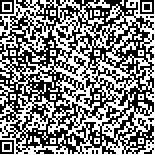|
|
|
| |
|
|
| 本文已被:浏览 3206次 下载 3202次 |

码上扫一扫! |
|
|
| 东海银鲳(Pampus argenteus)、灰鲳(P. cinereus)和中国鲳(P. sinensis)肌肉主要营养成分分析与评价 |
|
徐善良, 王丹丽, 徐继林, 严小军
|
|
宁波大学海洋学院 宁波大学应用海洋生物技术教育部重点实验室
|
|
| 摘要: |
| 采用国家标准生化测定法研究了3种野生鲳属鱼银鲳、灰鲳和中国鲳肌肉组织中的营养成分组成, 并对野生和养殖银鲳进行了营养评价。结果表明: 粗蛋白质银鲳显著高于灰鲳和中国鲳(P<0.05), 粗脂肪则以灰鲳最高, 中国鲳最低; 野生和养殖银鲳粗蛋白含量无显著差异(P>0.05)。在3种鲳鱼肌肉中检测出13 种脂肪酸。其中MUFA含量银鲳>灰鲳>中国鲳(P<0.05); PUFA含量和EPA+DHA含量3种鲳鱼无显著差异(P>0.05); 3种鲳属鱼主要以不饱和脂肪酸为主, EPA+DHA 含量平均占PUFA的82.54%; 野生银鲳的PUFA含量是养殖银鲳的1.53倍。氨基酸组成中以谷氨酸含量居首位, 氨基酸评分(AAS)和化学评分(CS)评判氨基酸显示, 赖氨酸的相对含量最为丰富; 3 种鲳属鱼的E/T、E/N皆高于FAO/WHO的评价标准; 野生银鲳肌肉的D/T和E/N显著高于养殖银鲳(P<0.05), 但必需氨基酸指数EAAI无明显差异。该结果说明3种鲳鱼营养组成合理且银鲳更胜一筹, 同时野生银鲳品质优于养殖银鲳, 但不失为一种优良的养殖品种。 |
| 关键词: 银鲳、灰鲳、中国鲳, 肌肉, 脂肪酸, 氨基酸, 营养评价 |
| DOI:10.11693/hyhz201204014014 |
| 分类号: |
| 基金项目:“十二五”农村领域国家科技计划课题, 2011BAD13B01 号; 浙江省科技厅创新团队项目, 2010R50029 号; 温州市洞头县科技计划项目, N2011K11B 号 |
|
| ANALYSIS AND EVALUATION OF NUTRITIONAL COMPONENTS IN MUSCLE OF PAMPUS ARGENTEUS, P. CINEREUS AND P. SINENSIS FROM THE EAST CHINA SEA |
|
XU Shan-Liang, WANG Dan-Li, XU Ji-Lin, YAN Xiao-Jun
|
|
Marine College of Ningbo University, Key Laboratory of Applied Marine Biotechnology, Ministry of Education, Ningbo University
|
| Abstract: |
| Biochemistry of tissues of Pampus argenteus, P. cinereus and P. sinensis was analyzed by adopting national standard method, and wild and cultured P. argenteus was compared. Three wild populations were sampled from the east china sea in Zhejiang Province (29.5—30°N, 122.5—123°E) in March—April 2010 and cultured P. argenteus from aquiculture farm in Dongtou (Zhejiang) in December 2010. As a result, The content of crude protein was P. argenteus> P. cinereus and P. sinensis (P<0.05), and the content of crude lipid was P. cinereus> P. argenteus> P. sinensis(P<0.05); both wild and cultured in crude protein were similar (P>0.05). Thirteen fatty acids were detected in muscle of three wild pomfret. MUFA contents in muscle were P. argenteus> P. cinereus> P. sinensis(P<0.05), however, PUFA contents and EPA + DHA contents were no significant difference in three wild pomfret (P>0.05). The unsaturated fatty acids were mainly in three kinds of pomfret and EPA + DHA content accounted for an average 82.54% in PUFA; PUFA content of the wild P. argenteus was 1.53 times than that of cultured one. The glutamic acid content was the highest in amino acids. Evaluation of amino acids by AAS and CS showed that the lysine relative content in muscle of three wild pomfret was the richest. The rate of essential amino acids/total amino acids (E/T) and essential amino acids/nonessential aminoacids (E/N) were all higher than evaluation criteria of FAO/WHO. The deliciousamino acids/total amino acids (D/T) and E/N in muscle in the wild P. argenteus were significantly higher than those in the culture (P<0.05), but both wild and cultured in essential amino acids index (EAAI) were similar. In conclusion, the nutritional composition of three wild pomfret was reasonable and the sustenance of wild P. argenteus was superior, moreover, the quality of wild P. argenteus was better than that of cultured, however, silver pomfret was regarded as an excellent breeding varieties. |
| Key words: Pampus argenteus, Pampus cinereus, Pampus sinensis, Muscle, Fatty acid, Amino acid, Nutritional evaluation |
|
|
|
|
|
|
